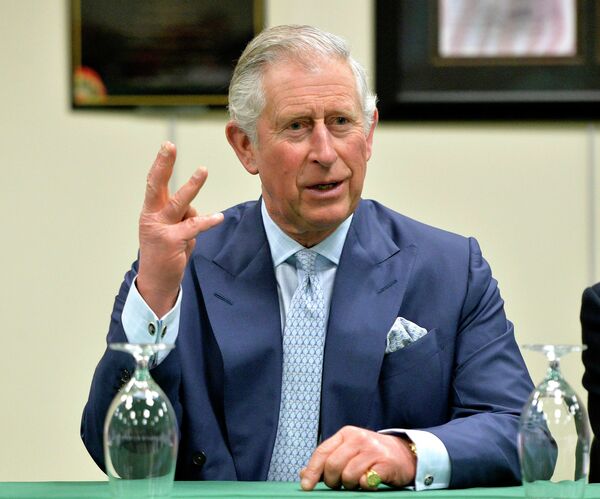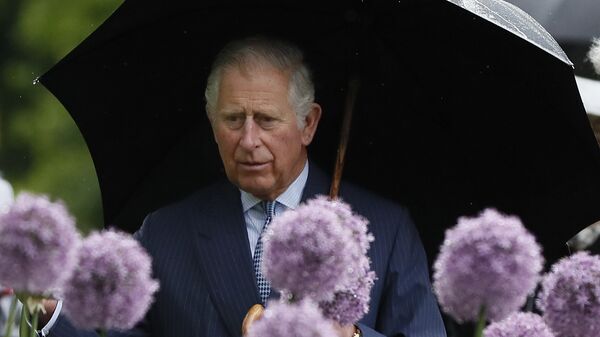Scientists have revealed a new study, titled Climate change and the Syria war revisited, and published in the journal Political Geography, found no evidence over Prince Charles' widely publicized theory that the world's changing weather pattern was responsible for the conflict that has, so far, claimed the lives of 300,000 people and resulted in 11 million forced to leave their homes.
#Syria is no '#climate war': New points in scientist´s controversy @Pol_Geog_Jl https://t.co/TAkGhSVW1S @PolitKonflikt @jan_selby @omardahi pic.twitter.com/yQvOCyw3Xu
— CEN Uni Hamburg (@CENunihh) September 7, 2017
The researchers dismissed his "over-blown" claims, insisting they were based on poor evidence that simply fueled skepticism over the need for dramatic action.
"Given the urgency of the climate change challenge and the contestation around it, plus the media's preference for striking, overblown stories… it is incumbent on analysts not to exaggerate climate-conflict linkages, or to champion false but, headline-friendly statistics," the study said.
'No Good Evidence'
Carried out by King's College London and the University of Sussex, the study exposed the prince's opinion, dismissing his suggestion that the drought in Syria during 2007 and 2010 was caused by human influences on global climate.
Professor Jan Selby, director of the Center for Conflict and Security Research at the University of Sussex, admitted he was dismayed the "extraordinary" claim had become so widely accepted when "the evidence for it is so thin."
"Climate change is a very real challenge, and will undoubtedly have significant conflict and security consequences, but there is no good evidence this is what was going on in this case. It is vital experts and policymakers resist the temptation to make exaggerated claims about climate change. Overblown claims only risk fueling climate skepticism," Professor Selby said.
Another critic, Mike Hulme, professor of climate and culture at King's College London, admitted the drought in northeastern Syria had been severe.
"But it was not necessarily part of a desiccating trend and cannot ambiguously be attributed to greenhouse gas emissions," Professor Hulme said.
The Link… According to Prince Charles
Speaking before the Paris Climate Change Summit in November, 2015, Prince Charles spoke of the real threat from changes in the world's weather.
The 194 countries later agreed a global deal to cut emissions, although the United States President Donald Trump has since dismissed the agreement.
"There's very good evidence that one of the major reasons for this horror in Syria was a drought that lasted for five or six years, which meant that huge numbers of people in the end had to leave the land. We're seeing a classic case of not dealing with the problem because, it sounds awful to say, but some of us were saying 20 something years ago that if we didn't tackle these issues you would see greater conflict over scarce resources and ever greater difficulties over drought, and the accumulating effect of climate change, which means that people have to move," the prince said in 2015.
Believing there was a direct link between climate change, conflict and terrorism, the prince added, "It's only in the last few years that the Pentagon have actually started to pay attention to this. It has a huge impact on what is happening."
Other Royal Blunders
In 2016, the Prince of Wales raised eyebrows when he said the rise of populist groups around the world that are "aggessive" toward those who practice a minority faith had "deeply disturbing echoes" of the Nazi era.
He sparked further fury after labeling the National Gallery extension in London "a monstrous carbuncle on the face of a much-loved and elegant friend."

In 2005, he upset the media gathered at Klosters, a Swiss ski resort, for a photo call marking Prince Charles' imminent wedding to Camilla Parker Bowles. During the shoot, Charles couldn't hide his contempt.
"I hate doing this… I hate these people," he muttered to his sons Harry and William, unaware that his microphone was picking up every word.
Asked by the BBC's royal correspondent Nicholas Witchell how he felt about his upcoming nuptials, Charles responded sarcastically, "I'm very glad you've heard of it, anyway." He then turned his head slightly toward Harry and whispered, "Bloody people. I can't bear that man. He's so awful, he really is."


